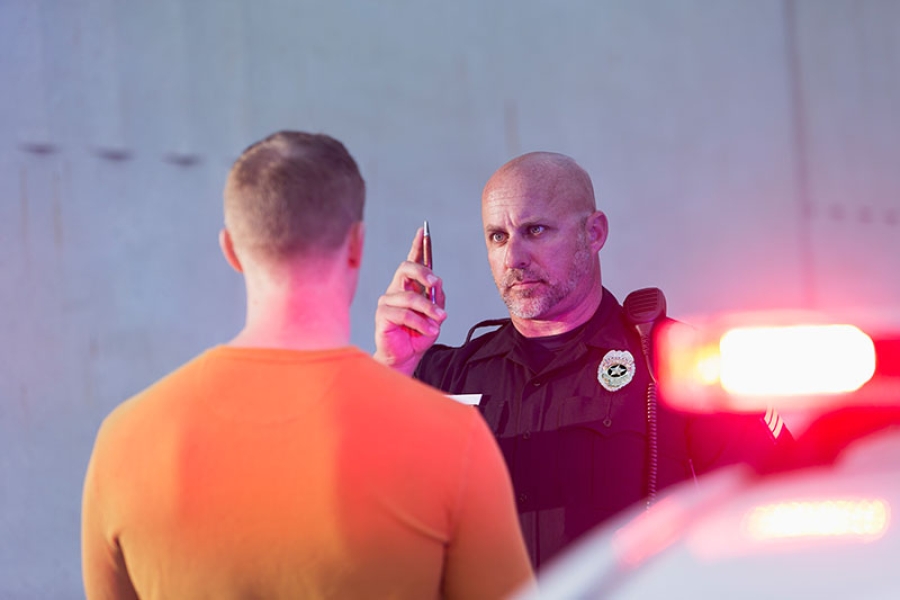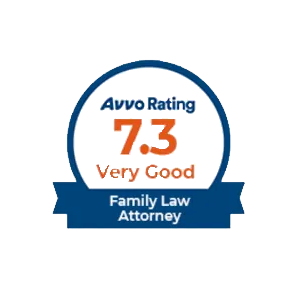Top DWI Defense Attorneys

We Fight For Our Clients
What is a DWI in Texas?
DWI in Texas is defined as operating a motor vehicle in public while intoxicated. If you cannot use your mental or physical faculties normally due to alcohol or drugs in your body and/or have a Texas blood alcohol concentration below 0.08, you will be considered intoxicated.
The most contentious issue in DWI trials is often the definition of intoxication. Our trial lawyers at Alston Landry are skilled in cross-examination of witnesses from the state and scrutinizing the evidence to resolve this technical issue.
The officer will also ask you to take a field sobriety test. The officer has the right to refuse to accept the blood or breath test and also to perform any field sobriety testing. The officer will be using an in-car camera recorder to videotape your movements. Any statement or action you make can be used against you in court.
Field sobriety tests are not accurate indicators of intoxication. These standardized tests can be rigged for many reasons. Our skilled DWI lawyers will review these procedures.
Texas DWI Laws & Statutes
Texas has the most severe penalties for drunk driving in the nation. Unfortunately, with each subsequent conviction, the consequences for driving under the influence in Texas can increase up to the fourth conviction. Here are the Texas DWI laws, penalties, and legal statutes you should consider when facing drunk driving charges.
Texas Driving While Under the Influence Penal Code (DWI)
Driving while intoxicated in Texas (DWI) is defined by Section 49.04 Texas Penal Code.
“Intoxicated while operating motor vehicle in public.”
Texas Penal Code Section 49.01 defines driving under the influence in Texas as:
- The ingestion of alcohol, controlled substances, drugs, dangerous drugs, or any other substance into your body can result in you not being able to use your normal mental and physical faculties.
- A concentration of alcohol greater than 0.08%.
How Blood Alcohol Level Impacts Charges
Texas DWI is determined based on the level of blood alcohol (or blood alcohol content) in your body when you are arrested. This can be tested by blood or breath. The body weight, alcohol consumption, types of drinks, gender, and other factors can all affect the person’s BAC. The Texas Penal Code sets the following BAC limits:
- 21 years or older: 0.08%
- Commercial drivers: 0.04%
- Less than 21: Any detectable amount.
Texas Penalties for Driving While Under the Influence
Texas DWI law increases the penalties for adults convicted of DWI (over 21) based on the number of DWI offenses committed and other exigent circumstances. In addition, a DWI conviction in Texas can be made if a child under 15 years of age is found in the vehicle.
Important to remember that Texas doesn’t have a look-back period for DWI. This means that every DWI charge will remain on your record for the rest of your life and can be used as an earlier charge. This punishment does not consider any aggravating factors that could elevate the crime class, such as having a child in your car or possessing a firearm.
Punishment for First DWI Offense
- Class B Misdemeanor
- Fine: Up to $2,000
- Jail term: Between 3 and 180 Days
- License suspension: Maximum 2 years
- An annual surcharge of $2,000 per year to maintain your license
- Community Service between 24 hours and 100 hours
- DWI Intervention or Education Program
- Possible ignition interlock device
Punishment for Second DWI Offense
- Class A misdemeanor
- Fine: Up to $4,000
- Jail term: Between 30 days and one year
- License suspension: Maximum 2 years
- An annual surcharge of $2,000 per year to maintain your license
- Community service: Between 80 and 200 hours
- DWI Intervention or Education Program
- Possible ignition interlock device
Punishment for Third and subsequent DWI offenses:
- Third-degree felony
- Fine: Up to $10,000
- Jail term: Between 2 and 10 Years
- License suspension: Maximum 2 years
- An annual surcharge of $2,000 per year to maintain your license
- Community service: Between 160 and 600 hours
- DWI Intervention or Education Program
- Possible ignition interlock device
CLASS C ALCOHOL-RELATED OFFENSES
Other alcohol-related offenses are also punishable in Texas as Class C Misdemeanors. A Class C offense in Texas doesn’t require jail time but carries a maximum $500 fine if convicted. These are the most frequent.
1 Person younger than 21 Driving under the Influence (DUI).
A DUI is a charge in Texas for anyone under 21 who drives a motor vehicle in public places and has any alcohol detectable on their breath. The officer may conduct a breath test to determine if alcohol was detected on the breath. To be charged with DUI, a person doesn’t have to be drunk.
Driver’s license suspension for under 21 DWI/DUI Charge
A person younger than 21 years old fails a blood or breath test or refuses a test: 60-days A person who refuses to take a blood or breath test must give it within 180 days What punishment is Texas for someone younger than 21 convicted of DWI? Class C Misdemeanor: 1st or 2nd Offense; 0-$500 Fine; Alcohol Class; Community Service Hours. You can also choose to defer disposition probation.
2 Public Intoxication
Any person of any age who is found in a public place and is intoxicated to such an extent that they may endanger themselves or others may be charged with public intoxication (PI). Public places are those areas where the public, or a substantial number of the public, has access. They include streets, sidewalks and common areas of schools and hospitals, apartment buildings and office buildings, transport facilities, and shopping areas.
3 – Minor in Possession (MIP)
A minor in possession of alcohol charge (called MIP Texas short) is a crime against the law. It is illegal to possess alcohol for anyone under 21 years of age unless it is in the scope of employment, visible presence of a parent, or under the supervision of a police officer. A first or second offense can result in a $500 fine. A third offense can result in a maximum $2,000 fine and 180 days imprisonment.
Driver’s license suspension for Class C Misdemeanor DUI conviction
- 1st DUI Offense — One-Month License Suspension
- 2nd DUI Offense — Two-Month License Suspension
- Third DUI Offense — Six-Months License Suspension
Other serious alcohol-related offenses
Intoxication Assault
A person may be charged with Intoxication assault if they are found guilty of operating a motor car in public while under the influence. This could happen when an individual is operating a watercraft, amusement park rides, or aircraft. Intoxication Assault can be considered a third-degree felony and is equivalent to a person’s 3rd DWI offense.
Manslaughter by Intoxication
Intoxication manslaughter is when someone under the influence drives a vehicle in public places and causes the death or injury of another person. This is a second-degree felonious crime. Remember that a vehicle may be considered a deadly instrument, which could result in your probation being canceled and further charges.
DWI with a child as a passenger
A person who is driving while under the influence of alcohol with a child in their vehicle may be charged with child endangerment. Children under 15 years old may also be charged with DWI and child endangerment. Texas child endangerment convictions are punishable by up to $10,000 in fines and a 180-day suspension of your driver’s license.
A DWI in your car with a child younger than 15 years is punishable by:
- Maximum 1000 hours of community service (restitution) if the offense is a felony
- Jail Time Between 180 Days and Two Years
- Fines up to $10k
- You are required to install an ignition interlock device (or breathalyzer) in your vehicle.
- Probation;
- DWI classes include alcohol awareness, education, and/or special classes to repeat DWI offenders.
- Higher auto insurance costs, including attorney fees and court fees.
What happens to my driver’s license after I am arrested for DWI?
Your driver’s license may be suspended for up to 90 days if you fail a blood or breath test. Your driver’s license may be suspended for 180-days if you refuse to submit to a breath or blood test. In addition, you can petition the Court to hold an ALR hearing. This will allow you or your attorney to dispute the suspension of your driver’s license after DWI charges.
Why you should hire a lawyer for your ALR hearing
An experienced attorney can help you present the strongest driver’s license reinstatement case. Your driver’s license will be kept while you wait for your ALR hearing. A judge will decide if there was reasonable suspicion that the officer stopped your vehicle and if there is probable cause for the arrest. Your driver’s license will be suspended if the judge rules favor of the state.
After a DWI, obtaining an occupational driver’s license
You may be eligible to receive an occupational driving license if your driver’s license has been suspended. This license allows you to drive for 12 hours per day, seven nights a week, to travel to work, school, and home duties. Tim Clancy Attorneys at Law will help you determine if you are eligible for an occupational driver’s license.
A request for an occupational license must be made to either the county where the person lives or the court that was initially responsible for the offense. A court order will be issued if it is determined that you are eligible for an occupational license. Before you can be issued an occupational license, this court order must be submitted and a few other items to the DPS. While your occupational license request processing is underway, the court order may be used for a temporary driver’s license.
For driver’s license suspensions due to intoxication, there may be a 180-day waiting period. However, it would be best if you spoke to an attorney to discuss your options.
Blood Alcohol Content (BAC) and How It Is Measured
DWI is when someone drives with a blood alcohol content of.08 or higher in Texas. You will most likely be tested for alcohol if you are arrested. There are many ways to do this, including breath samples and blood and urine samples. You can only have 3 to 4 drinks if you are under 200 lbs. Your BAC can rise if you drive after having had a few drinks.
Urine testing is less accurate and not as convenient for both officers and civilians. Although breath testing is the most convenient method of BAC testing and has been the subject of heated debate for some time, it remains the most popular. However, breath testing evidence is unlikely to be admissible in court due to its low reliability. Although blood testing is the most reliable method of BAC testing, it is difficult for officers to access, but it is still the best.
No Refusal Weekends in Pearland & Houston, Texas
To reduce drunk driving, law enforcement might conduct No Refusal Weekends at certain times of the year. For example, no Refusal Weekends are usually held during holidays such as New Year’s and the 4th of July. They require all drivers stopped for drunk driving to submit to BAC testing. Drivers who refuse to submit to blood sampling may be issued a warrant. Texas, for example, has implemented No Refusal laws.
Texas Field Sobriety Testing Used for DWI Arrests
Sometimes, people are pulled over for suspicion that they have been drinking/DWI/DUI, but in reality, they are simply tired, ill, or distracted. Police officers and other law enforcement use these tests to determine if the suspect is actually under the influence of alcohol or not.
- Horizontal Gaze Nystagmus
- Turn and walk
- One Leg Stand
Horizontal Gaze Nystagmus. Nystagmus refers to an involuntary bounce or jerking sensation of the eyeball. It is caused by disturbances in the inner ear system or the oculomotor controls of the eyes. Horizontal gaze nystagmus can be caused by substances that affect your nervous system such as alcohol or drugs. Horizontal gaze nystagmus will get more severe as the impairment level increases. This is one of many ways officers can tell if someone is driving while impaired.
Walk and turn. Walk and Turn is a test of divided attention that can be performed by anyone who is not under the influence. The individual must follow the instructions and perform simple movements. The individual must take nine straight, heel-toe steps in the walk-and-turn test. After the steps are completed, the individual must then turn their foot in the same direction.
One Leg Stand. One Leg Stand. The subject must stand at least six inches above the ground and count to the thousands. To determine if the subject is drunk, officers will search for the inability of balance.
Police Make Mistakes
- Stopping someone based on an anonymous 911 call
An officer should examine you for different reasons before pulling you over. For example, a 911 call made anonymously should not be enough to warrant a pullover.
- Without any proof of a violation, a vehicle can be stopped
Officers cannot pull over people because they feel they must. A stop for speeding is a warrant that requires additional evidence. Any arrest or stop without this proof will be inadmissible in court.
Mistakes in BAC Testing Equipment
Breathalyzers can often detect alcohol in foods and produce an incorrect reading. Breathalyzer readings can be affected by everyday items such as Listerine and chewing gum. Abnormally high readings can also be caused by lifestyle factors such as smoking, diabetes, or diets.
The Portable Breath Test Devices (PTB) is a small electronic alcohol breath test device that police officers can carry on the ground to determine whether a driver has been intoxicated. These devices have not been approved by the Texas Department of Public Safety to be used in criminal prosecutions. They are not reliable or accurate for the detection of impaired drivers.
Contact Our Pearland DWI Lawyers Today!
To discuss your case in confidence with a local criminal defense attorney, call (713) 804-6698. You can also visit our Contact us page to fill out a brief, confidential form. We’ll be back to you shortly.
For emergency assistance, call 24/7.
Contact
Phone: (713) 804-6698
Office Hours: 8AM – 5PM
Location
9307 Broadway St., Ste. 210B,
Pearland, Texas 77584

DWI Expertise:
First DWI
Second DWI
Third DWI
Habitual DWI Offenders
DWI or drug DWI
Underage Minor DWI
DWI Manslaughter
DWI for Child Passenger
Boating while intoxicated
Felony DWI



